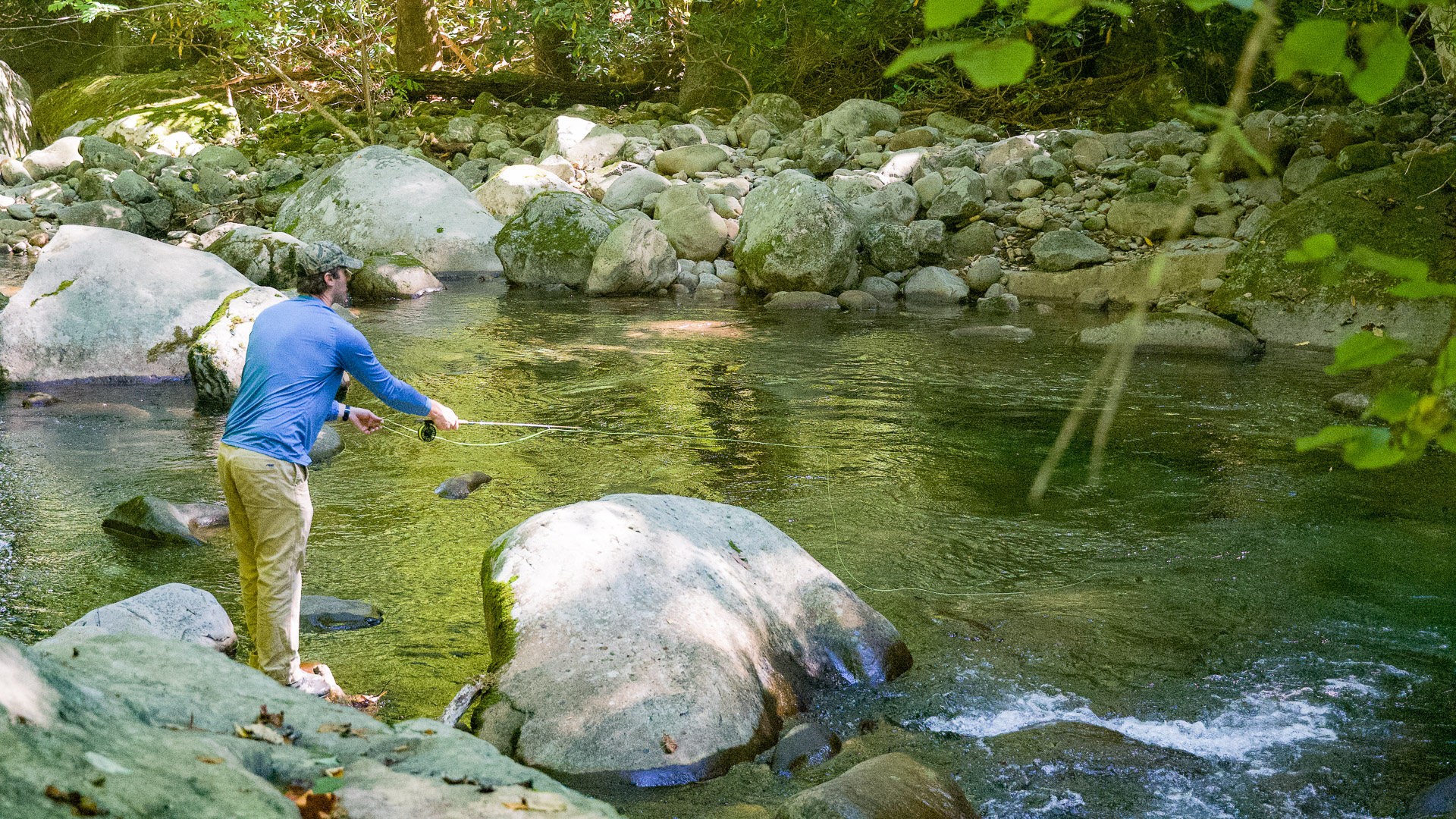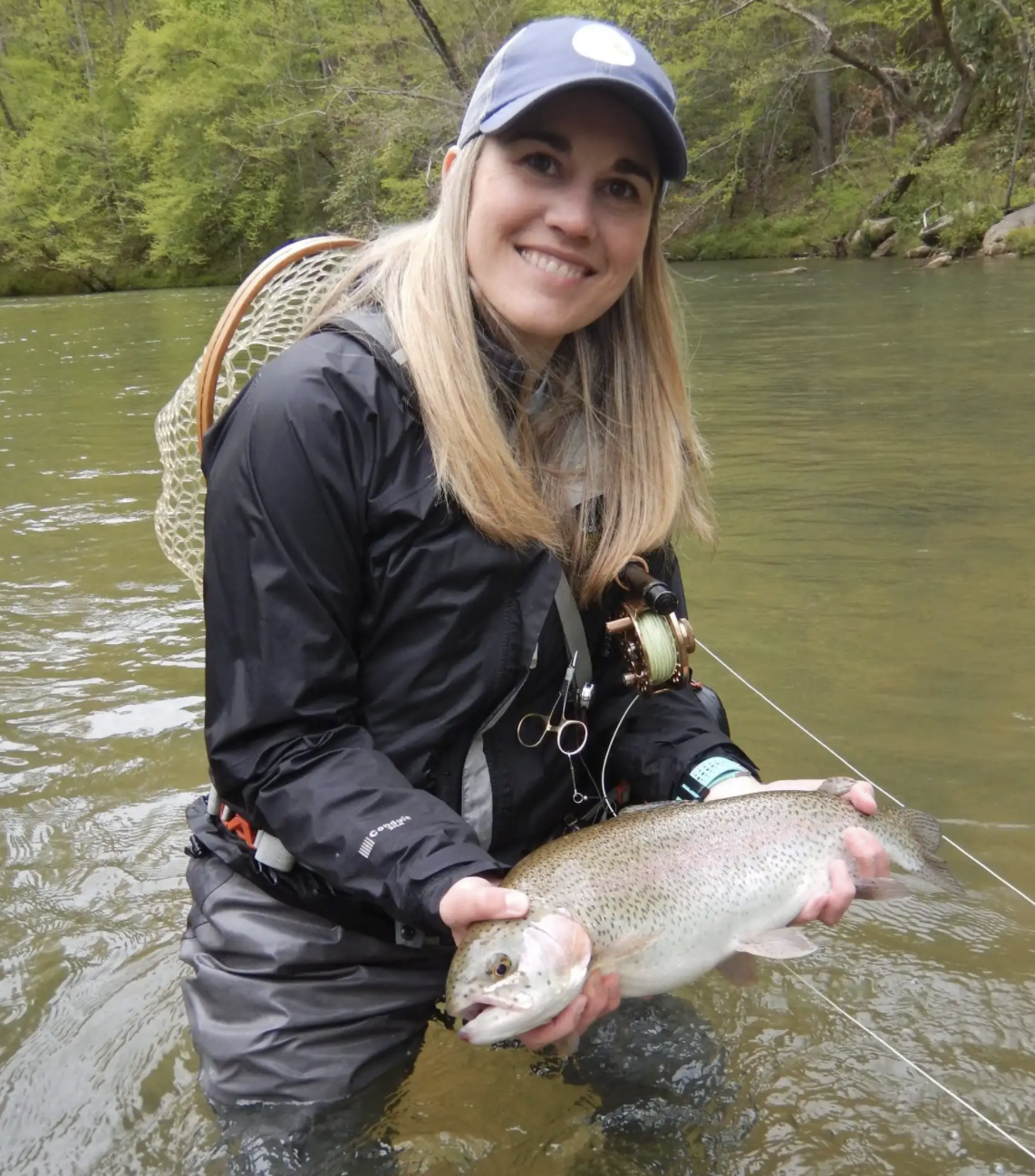
Great Smoky Mountains National Park is a popular tourist destination. Over 10 million people visit the park every year, and over 12 million visited the park in 2020. With so many people on a limited amount of land, campsites can fill up quickly and become quite noisy. However, if you are searching for a campsite that combines the peaceful tranquility of the backcountry with the convenience of car camping, then look no further than Big Creek Campground.

Big Creek Campground is located on the east side of Great Smoky Mountains National Park. This campground is only accessible from Interstate 40 or by taking a gravel road from Cataloochee. It has just 12 tent-only campsites, which is part of the reason it is our family’s new favorite camping spot. Big Creek Campground has bathrooms, a sink for washing dishes and potable water but no showers. The parking lot divides the tent section from the facilities, which helps keep the noise down in the camp. Big Creek flows right beside the campground, which also helps drown out your fellow campers.

Hiking: Big Creek Campground is located at an elevation of 1,700 feet. This area of the park has some of the most strenuous hikes in Great Smoky Mountains National Park but also provides some excellent stream access. Our family enjoyed the rolling hike of Big Creek Trail, which follows the creek over 5 miles and is one of the nonstrenuous hikes in the area. We hiked a little over a mile while fishing some larger pools and stopped to enjoy the water features of Mouse Creek Falls and Midnight Hole. This stream also houses some monster rocks, which provided my kids hours of entertainment (and some wet shoes).

Fishing: Great Smoky Mountains National Park has almost 3,000 miles of streams within its park boundaries. Twenty percent of the park’s streams can sustain trout populations, including Big Creek. Rainbow, brook and brown trout can be found throughout the park’s waters, and also smallmouth and rock bass. A valid North Carolina or Tennessee fishing license is valid in the park, and anglers can only fish using artificial lures or flies. Big Creek trout seemed eager to bite our clumsily thrown nymphs and dry flies, and at most large pools we successfully landed small trout.

What To Do: Big Creek campground is located on the east side of Great Smoky Mountains National Park and close to Cataloochee Valley, which provides ample opportunity to spot wildlife, including elk that were recently introduced to the park. The Pigeon River is also on the way to the campground from Interstate 40 and provides fishing and whitewater rafting opportunities. Horseback riding is allowed on some trails in this section of the park, and there is a separate campground for visitors who are overnighting with their horses. There is ample water to swim in during the summer months and many miles of water for anglers of any level.

Big Creek Campground is a camper’s dream. It provides relaxation and peaceful solitude, and it is easily accessible. Water activities are abundant in the warmer months, and the trails in this area of the park offer beauty for any level of hiker. Big Creek Campground is our new favorite campground in Great Smoky Mountains National Park.






